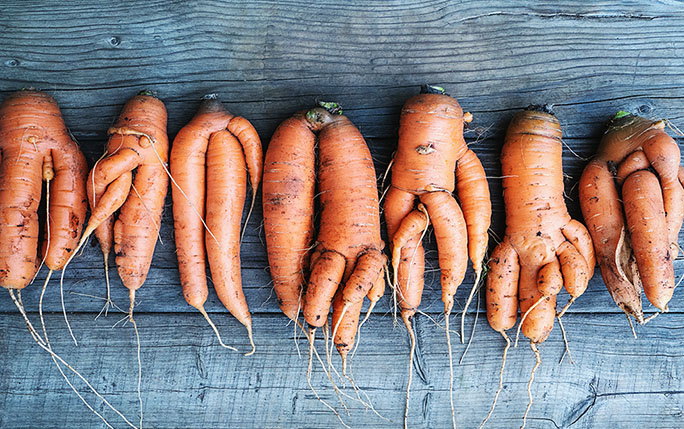The role of wonky carrots in achieving Social Development Goals

Centre for Sustainable Business Advisory Board Chair, Clare Westcott, sits down with Paul Williams from Princes Ltd, and Ashley Davies from FareShare, to discuss the positive effect of reducing food waste in achieving other Social Development Goals.
Paul Williams, Global Head of Sustainability at Princes Ltd, and Ashley Davies, Commercial Manager (Ambient) in FareShare’s Food Team, have a passion for how business can make a difference to the planet and the communities in which they operate.
Despite working for different sectors and customer profiles, their perspectives are remarkably aligned when it comes to the importance of stopping food waste.
In the UK, food waste accounts for approximately 6-7% of the total greenhouse gas emissions, and a staggering 3m tonnes of good-to-eat food are wasted across the UK food industry every year, enough to produce 7 billion meals.
Princes is one of Europe’s largest food and drink groups, specialising in sourcing and manufacturing.
Partner FareShare is the UK's largest charity fighting hunger and food waste, working with almost 9,500 frontline charities and community groups to get food and drink to people facing hardship.
The desire from both organisations to ensure food stays out of landfill and gets onto plates instead, materialised via a partnership agreement in 2013, and for over 10 years they have worked collaboratively to ensure value is found across the food supply chain.
As Paul explained, “food surplus can be the result of multiple factors”, for example, warm winters usually reduce soup sales, or media messages can strongly influence consumer perceptions of certain products, impacting demand.
The media often present certain foods as ‘healthier’ than others - eg superfoods - or by raising customer awareness of ethical production, they can also change attitudes to sustainable alternatives like ‘wonky veg’.
These and other factors influence sales and can create an excess of unsold products in food and drink commercial organisations.
At the other end of the spectrum, FareShare faces the reality of a global economic crisis and individuals in food poverty.
The facilitation role FareShare plays “goes deeper than putting a meal on the table”, said Ashley.
In 2022, FareShare redistributed 128 million meals worth of food and drink to thousands of local charities and community groups across the UK.
This equates to 53,000 tonnes of food and drink, saving 85,000 tonnes of CO2e*, which is the equivalent amount of
As staggering as it sounds, something as fundamental as ensuring people are fed has wide-reaching consequences for communities and the overall socio-economic system.
It also shows the importance of achieving the UN’ Sustainable Development Goal 2: Zero Hunger, due to its positive impact in achieving multiple goals.
While collaboration seems to be the way forward, opportunities are wider than repurposing food surplus, however, “this is not a carrot or a stick approach, it requires multiple inputs”, said Ashley.
“There is a role for legislation to put sustainability on the agenda of decision makers, but the real power comes from the consumer,” said Paul.
Consumers play a key role in applying pressure to demand transparency on how organisations operate, which also allows them to make informed decisions, whether these are to purchase goods, invest in, or work for them.
To finish, Ashley raised a crucial point about responsible consumption and circularity: “We should reframe our view of food waste to food surplus”, said Ashley.
Food may no longer be required for what it was originally intended, be that to meet the commercial needs of a buyer, or our family menu for the week, but with some rethinking or redistribution it can still have value.
Now where are the wonky carrots…?
*Calculated using the methodology set out in The Carbon Trust's 'FareShare's Footprint' report.